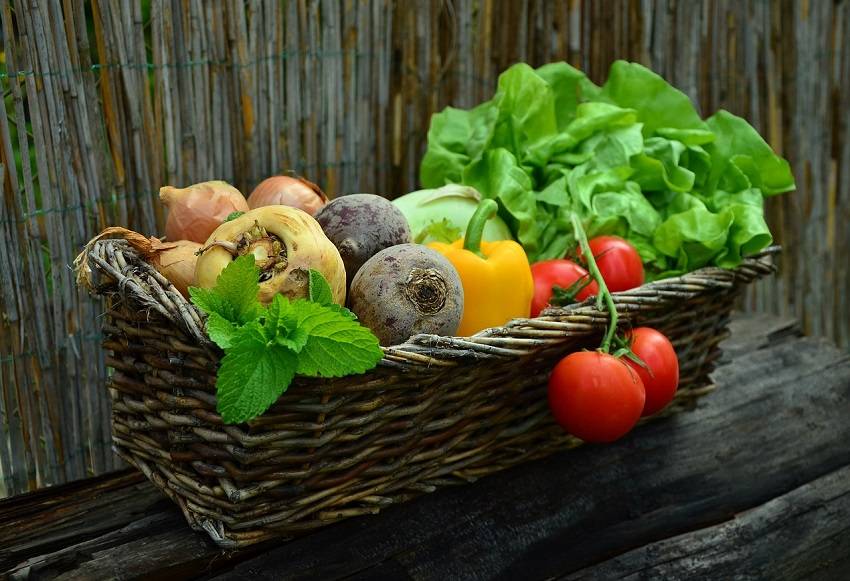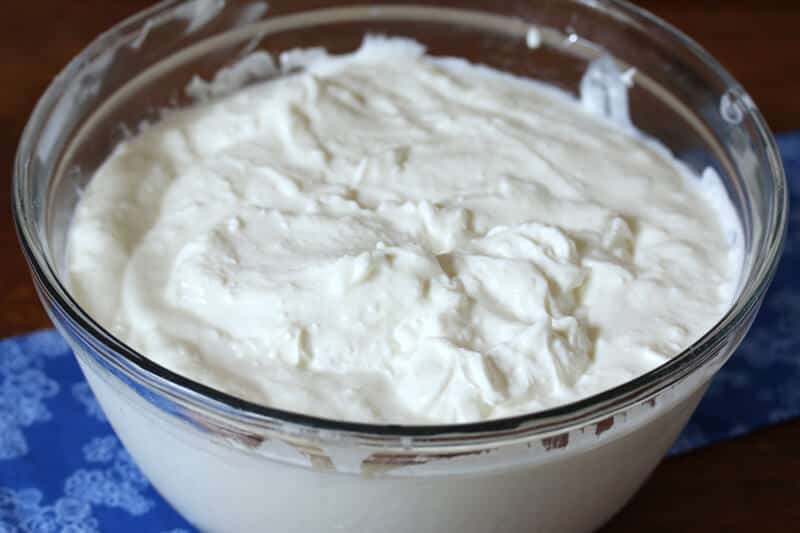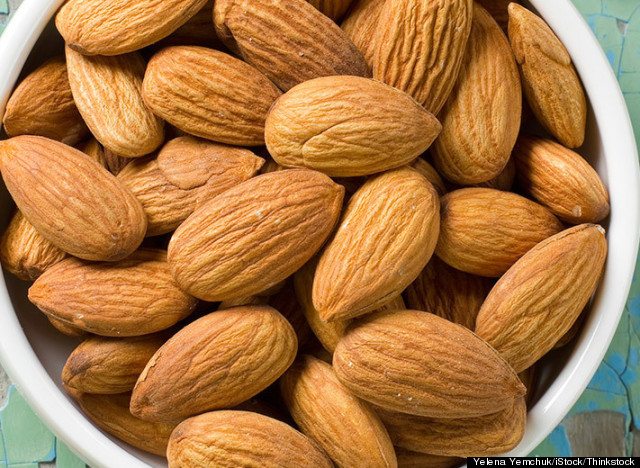Fruits & Veggies

A healthy kitchen starts with fresh produce—yes, even in winter. Fruits and vegetables deliver vitamins, minerals, and plant nutrients that protect against chronic conditions including obesity, heart disease, type 2 diabetes, and dementia. Keep a good variety on hand and aim to eat at least two servings of fruit and three servings of vegetables every day.
I always like to stock my kitchen with potatoes, onions, garlic, lemons, and limes for cooking. In addition, buy fresh produce like apples and oranges that you can toss in your bag for on-the-go healthy snacks. Make sure you have leafy greens and non-starchy veggies on hand too to help you stick to a plant-based eating plan.
How to use them: Choose more recipes that call for veggies; add veggies to egg dishes, smoothies, and even muffins; eat fruits and veggies as snacks. Shredded veggies can even replace some of the meat in burgers.
Greek Yoghurt

Nonfat or low-fat Greek yoghurt is a stellar source of high-quality protein and many essential nutrients like calcium and potassium. Traditional Greek yoghurt is strained so it removes the watery whey, resulting in a thicker, creamier yoghurt with twice the protein and about half the sugar of regular yoghurt. A typical single-serving container of nonfat Greek yoghurt packs around 17 grams of protein—about the equivalent of three eggs!
How to use it: Enjoy with fresh fruit as a snack, or use in smoothies, as an oatmeal topper, or as a healthier stand-in for sour cream or mayo in most recipes.
Nuts

It’s okay to get a little nutty for your health’s sake. Research reveals that people who eat around an ounce of nuts per day—whether they prefer almonds, cashews, walnuts, pistachios, or another nut—tend to be thinner and have a lower risk for heart disease and certain cancers compared to those who avoid nuts. Because nuts are high in fat, they are calorie-rich, so portion control is key. Nutritionally, all nuts are rich in heart-healthy unsaturated fat and protein and provide nutrients like vitamins B and E, magnesium, and filling fibre.
How to use them: Toast them to bring out even more flavour so fewer nuts satisfy your taste buds. Chop and sprinkle over oatmeal, yoghurt, salad greens, roasted veggies, or whole grains.
Extra Virgin Oil

Research suggests that extra virgin olive oil (EVOO) may help reduce the risk of heart disease, stroke, type 2 diabetes, and osteoporosis.
Olive oil is a staple of the Mediterranean Diet—which is rich in fruits and vegetables, healthy fats, and whole grains and can lower your risk for certain health problems.
How to use it: Drizzle olive oil on greens as a salad dressing, prepare it as a dip for bread and rolls, or use it to roast everything from fish to veggies. A tablespoon has about 120 calories, though, so use it sparingly.
Whole Grains

Despite popular opinion, there’s no reason to give up carbs entirely if you’re trying to lose weight or improve your health this year. In fact, whole grains (like brown rice, quinoa, farro, oats, and barley) have been linked to a lower risk of heart disease, type 2 diabetes, obesity, and certain types of cancer. Eating more whole grains may even add years to your life.
Whole grains provide filling fibre plus beneficial antioxidants, vitamins, and minerals. Strive to get about three servings of whole grains per day.
How to use them: Enjoy oats or other whole-grain cereals for a hearty breakfast. Add couscous, farro, quinoa, or other cooked whole grains to salads or side dishes. Bake with whole-grain flour whenever possible.

